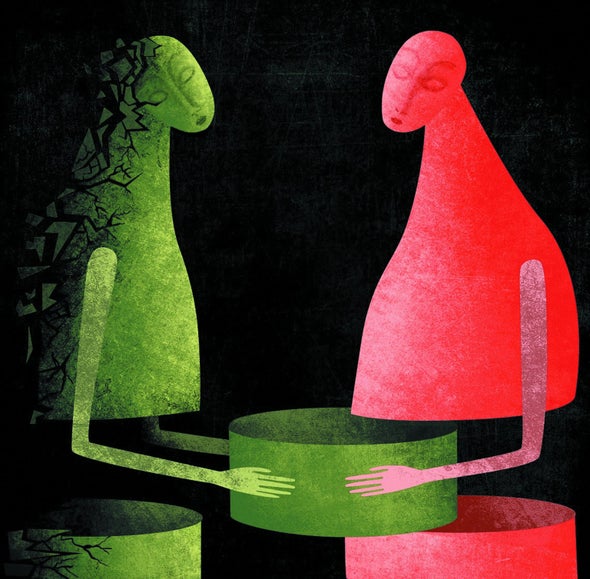The first time Fred Gillis noticed something was wrong he was on the ice, holding his hockey stick but somehow unable to shoot the puck. Was middle age catching up with him, or was it something more serious? Over the following months Gillis's arms continued to weaken. Soon it took two hands to brush his teeth, and he couldn't lift a plate to clear the dinner table. Gillis was 52 in 2015 when he got the diagnosis he dreaded most: amyotrophic lateral sclerosis (ALS), the deadly motor neuron disorder sometimes called Lou Gehrig's disease. “Fred had a co-worker whose husband had ALS,” recalls his widow, Lana Gregoire. “He wanted to die from anything but that.”
Both Gillis and Gregoire worked in Canadian law enforcement. They were pragmatic, realistic and familiar with death. “We used these three words,” she says. “You have to accept, then you have to adapt and then you have to be at peace.” A public servant to the core, Gillis found peace by participating in and raising money for ALS research. But a new Canadian law gave him an unexpected opportunity to make his dying days even more meaningful. In June 2016 Canada became the sixth country in the world to permit medical assistance in dying (MAID) to end intolerable suffering for terminally ill patients, and organ donation organizations had begun to develop guidelines that would allow people choosing MAID to also make a plan to donate their organs for transplant.
Gillis had not been a fan of the euthanasia law, but when he learned he could combine MAID with a plan to donate organs, “he was ecstatic,” Gregoire says. “His attitude was, ‘ALS, you can't take this away. We're going to give life to other people.’”
Combining euthanasia with organ donation may sound logical, but it is ethically fraught and not widely done. In 2017 the Netherlands became the first country to publish clinical guidelines for the practice. It established a key ethical principle: the decision to seek medical assistance in dying must precede and be separate from the organ donation plan, so that patients make their fateful choice without feeling pressure to donate. In Canada, each province has its own organ donation organization, and only some are working with MAID patients. The experience of three such organizations with the first 30 MAID donors was reported in a recent issue of the New England Journal of Medicine. In Canada, nearly two thirds of people who qualify for MAID have active cancer and are therefore ineligible to donate organs; others may be too elderly. The report looked at 56 patients who were deemed eligible, 30 of whom went on to donate a total of 74 lifesaving organs.
“The feedback we heard from these patients is that they want to hear about the opportunity and make that decision themselves,” says Andrew Healey, chief medical officer at the Trillium Gift of Life Network in Ontario and a co-author of the report. “People feel comfortable saying yes, and people feel comfortable saying no.” In other countries that permit euthanasia, he says, the patient typically must be the one to broach the idea of donation.
In the U.S., MAID is permitted in nine states and Washington, D.C., but has not been combined with organ donation. Of course, anyone with a terminal disease can designate their organs for donation, but such plans often fail because death comes too slowly, says Joshua Mezrich, a transplant surgeon at the University of Wisconsin School of Medicine and Public Health. Even if the patient is on life support and a decision is made to pull the plug, about 30 percent of the time the organs become nonviable as blood pressure drops and circulation grinds to a halt. Mezrich has written movingly about an ALS patient named Wayne Bender who fervently wished to donate a kidney while he was still alive and hoped to donate more organs after death. In the end, he could do neither. The kidney plan was vetoed by the hospital's legal experts out of concern that Bender might die as a result of donation—an event that would violate the Dead Donor Rule, a cardinal principle of organ transplantation. And Bender died too slowly for his organs to be taken after death.
Some experts have proposed a concept called imminent death donation that would allow the kind of kidney donation Bender had in mind, but its moral and legal status remain murky. Interestingly, donation works well after MAID because patients die quickly from the intravenous euthanasia drugs. Fred Gillis was able to donate two kidneys, his lungs and his liver when he died in April 2018. “He knew he was giving life, and that's all that mattered,” Gregoire says. She and their three kids were by his side and toasted him that evening—at a hockey bar. “We knew he would like that.”


